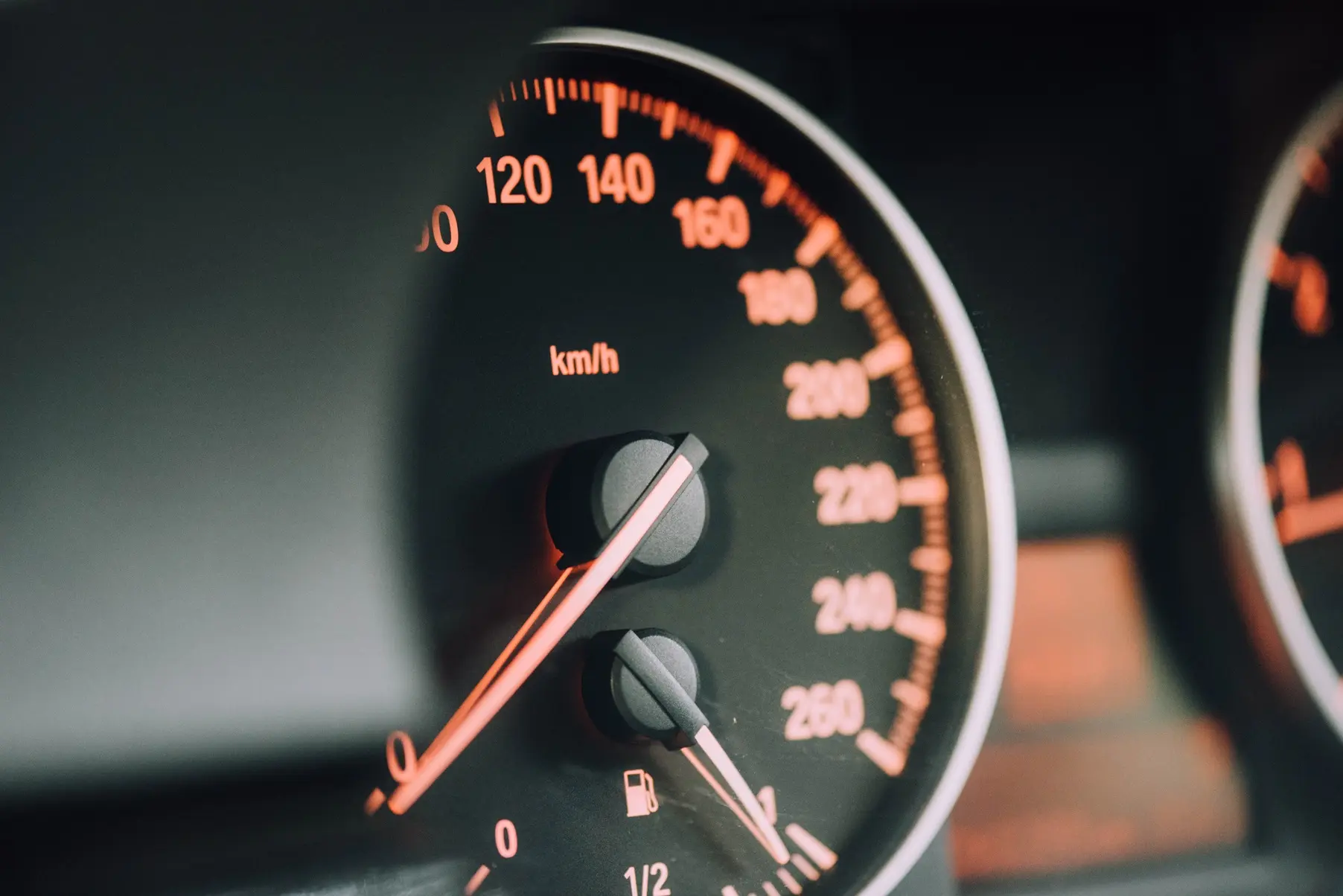The Key to a Reliable VIN Check
By performing a VIN check, buyers can access a comprehensive report that provides insights into the motor vehicle's background, helping them make an informed decision before purchasing.

Navigate with Confidence: The Key to a Reliable VIN Check
Understanding VIN Checks
When it comes to purchasing a used motor motor vehicle, conducting a VIN check is an essential step in ensuring a reliable and informed transaction. A VIN check provides valuable information about the history and condition of the motor vehicle, giving buyers the confidence they need to make an informed decision.
What is a VIN Check?
A VIN check, also known as a Vehicle Identification Number check, is a process that involves obtaining and analyzing the unique identification number assigned to a motor vehicle. The VIN is a combination of letters and numbers that provides a wealth of information about the vehicle's history, including its manufacturing details, ownership history, accident records, and more.
By performing a VIN check, buyers can access a comprehensive report that provides insights into the motor vehicle's background, helping them make an informed decision before purchasing. It allows potential buyers to verify the accuracy of the information provided by the seller and identify any potential risks associated with the vehicle.
Why are VIN Checks Important?
VIN checks are crucial for several reasons. Firstly, they provide buyers with a reliable and independent source of information about the motor vehicle they are considering purchasing. This information helps buyers to verify the accuracy of the seller's claims and avoid potential scams or misrepresentations.
Secondly, a VIN check allows buyers to uncover important details about the motor vehicle history. This includes information about past accidents, flood damage, ownership history, odometer discrepancies, and more. By understanding the vehicle's history, buyers can assess its condition, identify any potential risks, and make an informed purchasing decision.
Moreover, VIN checks are a vital tool for protecting buyers from purchasing stolen or illegally modified motor vehicle. By verifying the VIN against official databases such as the PPSR, buyers can ensure that the motor vehicle has a clean title and is free from any legal or financial encumbrances.
In summary, VIN checks are an essential step when purchasing a used motor motor vehicle. They provide buyers with an accurate and comprehensive understanding of the motor vehicle history, helping them navigate the purchasing process with confidence. By performing a VIN check, buyers can verify information, identify potential risks, and make informed decisions that align with their needs and preferences.
The Importance of PPSR and REVS Checks
When it comes to purchasing a used motor motor vehicle in Australia, conducting thorough checks is essential to ensure the reliability and legality of the transaction. Two important checks that buyers should consider are the PPSR check for motor vehicles also historical known as a REVS check, or a HIN check for boats.
PPSR Check for Motor Vehicles
A PPSR (Personal Property Securities Register) check is a crucial step when buying a used motor vehicle in Australia. This check provides valuable information about the vehicle's history, including any outstanding debts, encumbrances, or financial interests that may affect its ownership.
By conducting a PPSR check, buyers can verify if the vehicle has been reported stolen, written-off, or has any money owing on it. This helps to protect buyers from potential financial and legal risks associated with purchasing a vehicle that may have undisclosed issues or liabilities.
It is important to note that a PPSR check does not provide detailed information about the vehicle's mechanical condition or accident history. For a comprehensive understanding of a vehicle's history, buyers may consider obtaining a vehicle history report or conducting a vehicle title check.
REVS Check for Boats
For those looking to purchase a used boat in Australia, conducting a REVS (Register of Encumbered Vehicles) check is highly recommended. The REVS check provides information on whether the boat has any outstanding loans, debts, or financial encumbrances attached to it.
By performing a REVS check, buyers can ensure that there are no financial obligations or legal issues associated with the boat they intend to purchase. This helps prevent potential problems that may arise from undisclosed financial liabilities or disputes over ownership.
Similar to a PPSR check for motor vehicles, a REVS check does not provide information on the boat's condition, maintenance history, or accident records. If buyers require additional details about the boat's history, they may consider conducting a car history check or seeking professional advice.
By performing both a PPSR check for motor vehicles and a REVS check for boats, buyers can gain valuable insights into the legal and financial status of the vehicles they are considering. These checks provide a level of confidence and peace of mind, allowing buyers to make informed decisions and minimize the risks associated with purchasing used motor vehicle.
Benefits of VIN Checks
Performing a VIN check before purchasing a used motor motor vehicle can provide several important benefits. By verifying the vehicle's history, identifying potential risks, and making informed purchasing decisions, individuals can navigate the buying process with confidence.
Verifying Vehicle History
One of the primary benefits of conducting a VIN check is the ability to verify the vehicle's history. A comprehensive VIN check provides crucial information about the vehicle's past, including its ownership history, accident records, mileage readings, and more. This information allows buyers to assess whether the vehicle has been involved in any major accidents, undergone significant repairs, or has outstanding finance against it.
By understanding the vehicle's history, buyers can make more informed decisions about whether to proceed with the purchase. It provides peace of mind and helps prevent potential future issues that may arise from undisclosed or hidden problems. For a more detailed examination of a vehicle's history, you may want to consider conducting a vehicle history report.
Identifying Potential Risks
A VIN check also helps in identifying potential risks associated with a used motor vehicle. It can reveal important information such as whether the vehicle has been reported stolen, written off, or has outstanding debts against it. These risks can significantly impact the value and safety of the vehicle.
By conducting a VIN check, buyers can identify any red flags or warning signs that may indicate potential risks. This empowers them to make informed decisions and avoid purchasing vehicles with hidden issues that could pose financial or legal problems in the future.
Making Informed Purchasing Decisions
Ultimately, the goal of a VIN check is to enable buyers to make informed purchasing decisions. Armed with the knowledge obtained from the VIN check, individuals can evaluate the vehicle's condition, history, and potential risks. This information allows them to negotiate the price, seek further inspections or repairs, or simply choose to walk away from a deal that doesn't meet their requirements.
It's important to note that a VIN check is just one part of the overall research process when purchasing a used motor vehicle. It is also recommended to perform additional checks such as a vehicle title check and car registration check to ensure legal compliance and confirm ownership details.
By conducting a reliable VIN check, buyers can make informed decisions based on accurate information, minimizing the risks associated with purchasing a used motor vehicle. It provides peace of mind and establishes a strong foundation for a successful and satisfactory buying experience.
How to Perform a Reliable VIN Check
Performing a reliable VIN check is essential when you are considering purchasing a used motor motor vehicle. It helps you uncover important information about the vehicle's history, potential risks, and guides you in making an informed decision. Here are the key steps to carrying out a reliable VIN check.
Obtaining the Vehicle Identification Number (VIN)
The first step in conducting a VIN check is obtaining the Vehicle Identification Number (VIN) of the motor vehicle you're interested in. The VIN is a unique alphanumeric code that serves as a vehicle's fingerprint and contains crucial information about its history. You can find the VIN in several places, including the dashboard, driver's side door jamb, or vehicle registration documents. For boats, the VIN is often located on the transom or the hull.
Choosing a Reliable VIN Check Service
Once you have the VIN, it's important to choose a reliable VIN check service to obtain a comprehensive report. A reputable VIN check service will access various databases to gather information about the vehicle's history, including its ownership, accident records, title status, and more. Look for services that provide detailed reports and access to a wide range of data sources to ensure you get accurate and reliable information. Check out our article on vehicle history report for more information.
Interpreting the VIN Report
After obtaining the VIN report, it's crucial to interpret the information correctly. The report will provide you with valuable insights into the vehicle's history and potential risks associated with it. Look for red flags such as previous accidents, flood damage, or any discrepancies in the vehicle's title history. Pay attention to important details like mileage, ownership records, and service history. Understanding how to interpret the report will help you make an informed decision and avoid potential pitfalls. For more information on other checks you might consider, such as a vehicle title check or car registration check, check out our related articles.
By following these steps, you can perform a reliable VIN check and gain valuable insights into the history and condition of the motor vehicle you are considering purchasing. However, it's important to note that a VIN check is just one part of the overall due diligence process. It's also advisable to physically inspect the motor vehicle, seek professional advice, and understand the legal and financial implications involved. This comprehensive approach will help you navigate with confidence and make a well-informed purchasing decision. For more information on conducting a thorough vehicle check, refer to our article on car history check.
Additional Considerations for Buyers
When it comes to purchasing a used motor motor vehicle, there are additional considerations that buyers should keep in mind to ensure a smooth and reliable transaction. These considerations include inspecting the vehicle, seeking professional advice, and understanding the legal and financial implications involved.
Inspecting the Vehicle
Before finalizing any purchase, it's crucial to thoroughly inspect the motor vehicle you intend to buy. This inspection serves as an opportunity to identify any potential issues or hidden damages that may not be apparent in a VIN check. Here are some key areas to focus on during the inspection:
- Exterior: Check for any signs of rust, dents, or paint damage. Inspect the tires for wear and tear, and ensure they are in good condition.
- Interior: Carefully examine the condition of the seats, dashboard, and upholstery. Check if all the features and accessories are functioning properly.
- Mechanical Components: Take a closer look at the engine, transmission, brakes, and suspension. If possible, consider getting a professional mechanic to conduct a thorough inspection.
Inspecting the vehicle provides you with a better understanding of its overall condition and helps you determine if it meets your expectations and requirements.
Seeking Professional Advice
If you're unsure about any aspect of the motor vehicle purchase, it's always wise to seek professional advice. Consulting with a knowledgeable mechanic, automotive expert, or marine surveyor can provide valuable insights into the condition and value of the vehicle. They can identify any potential mechanical issues or structural problems that may not be evident to an untrained eye.
Additionally, seeking advice from professionals can help you make an informed decision and give you peace of mind before proceeding with the purchase.
Understanding Legal and Financial Implications
Buying a used motor vehicle involves legal and financial considerations that buyers should be aware of. These considerations include:
- Transfer of Ownership: Ensure that the necessary paperwork and legal requirements are fulfilled to transfer ownership of the motor vehicle to your name.
- Liens and Encumbrances: Confirm that there are no outstanding liens or encumbrances on the motor vehicle that could affect your ownership rights.
- Insurance and Registration: Familiarize yourself with the insurance and registration requirements for the motor vehicle in your jurisdiction.
Understanding the legal and financial implications involved in the purchase helps you avoid any potential complications or surprises down the line.
By considering these additional factors, you can enhance your buying experience and make a well-informed decision when purchasing a used motor motor vehicle. Remember to complement your research with a comprehensive vehicle history report or car history check to gain a complete picture of the vehicle's background and ensure a reliable transaction.
More Information
See our docs page for more information, or Contact Us if you have any questions.





